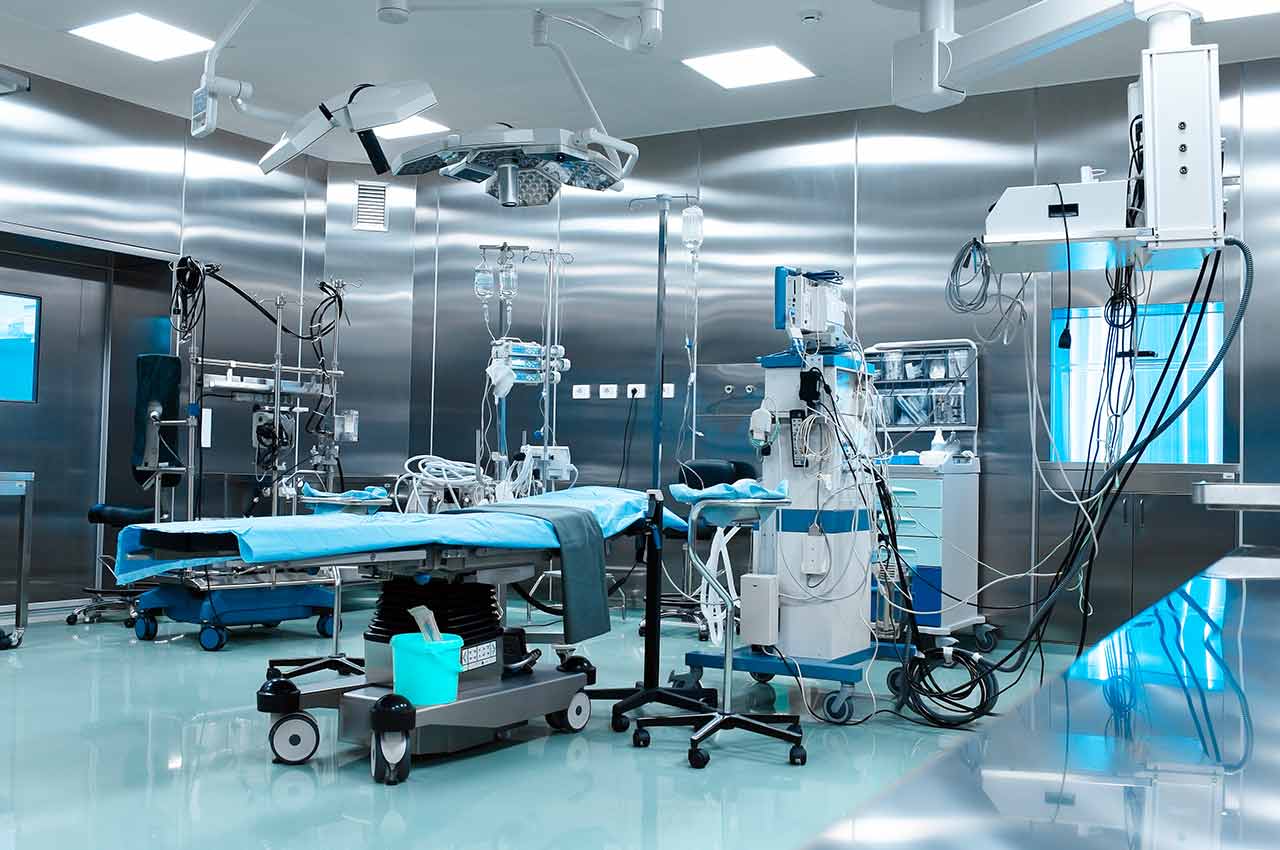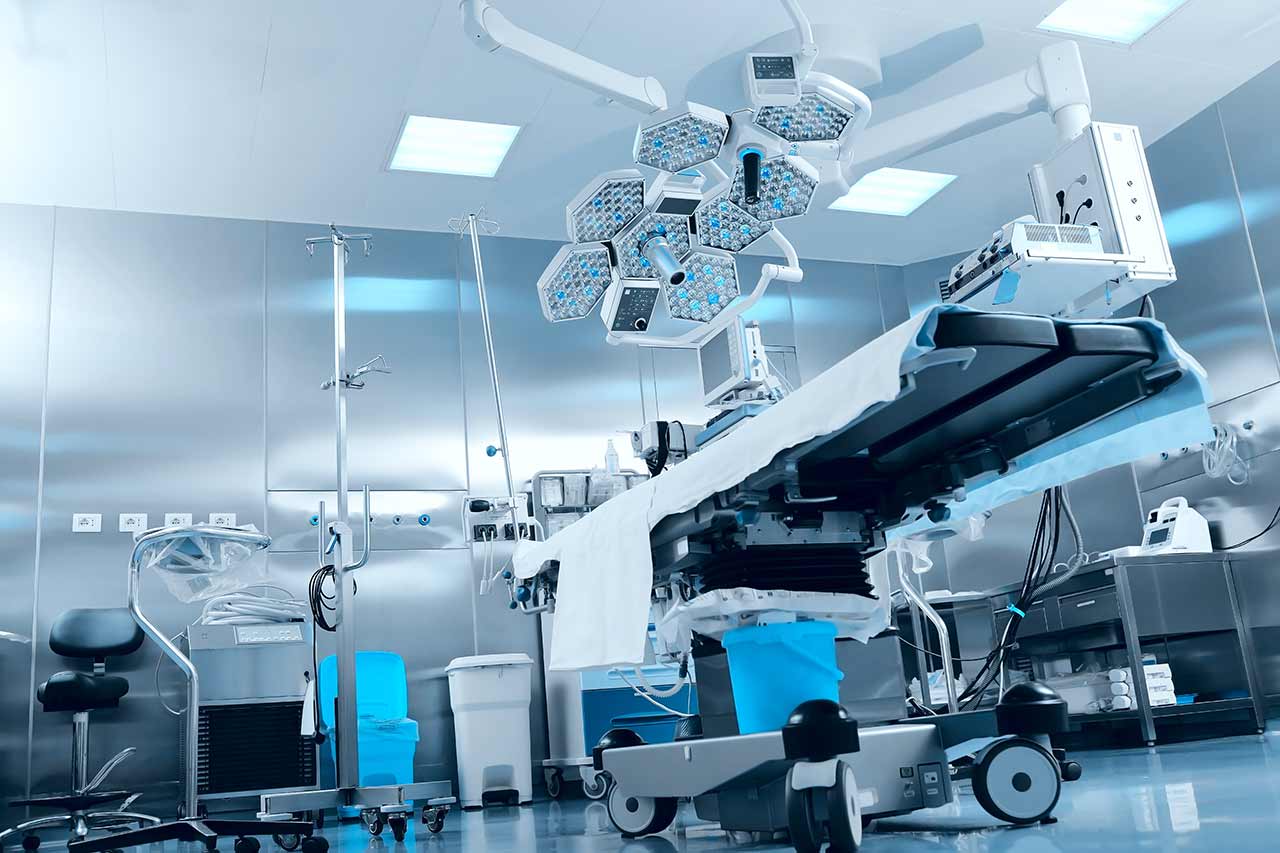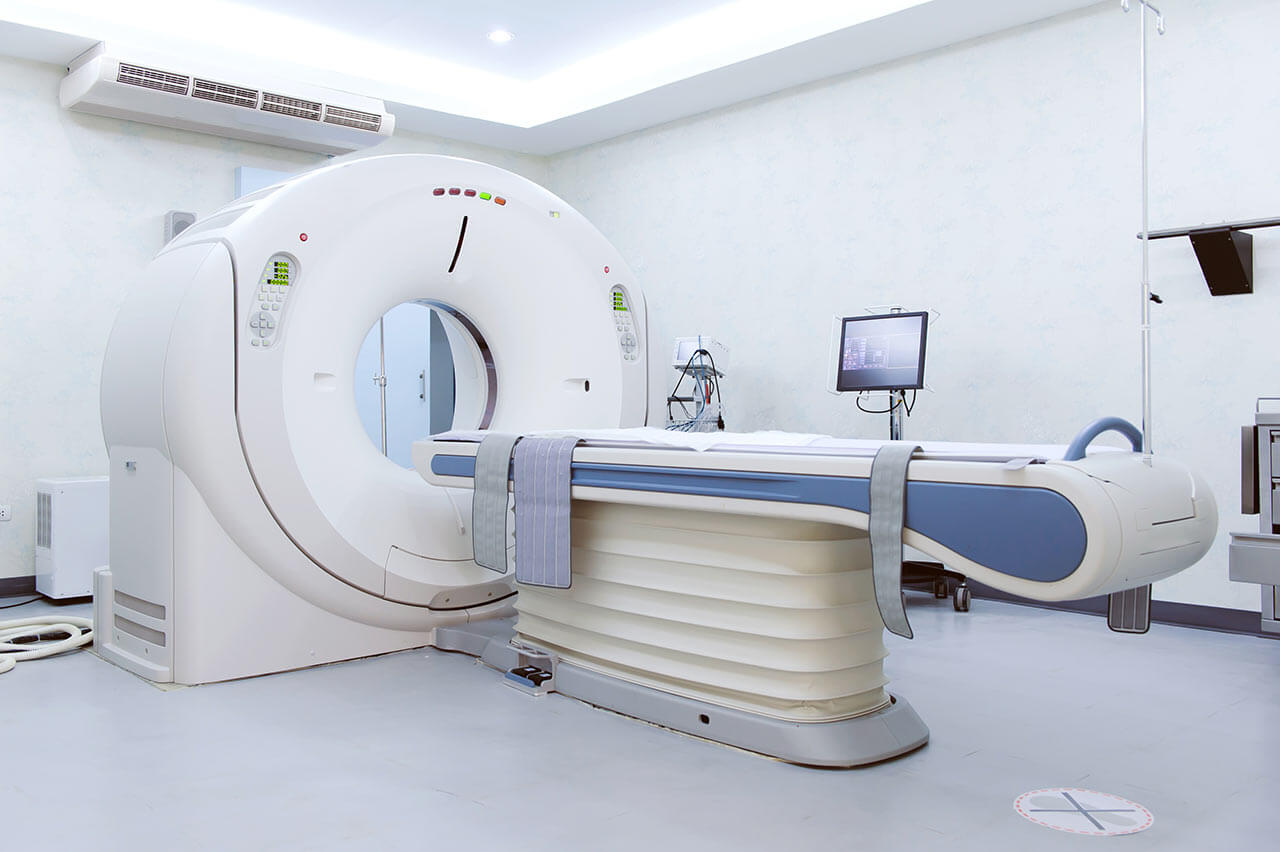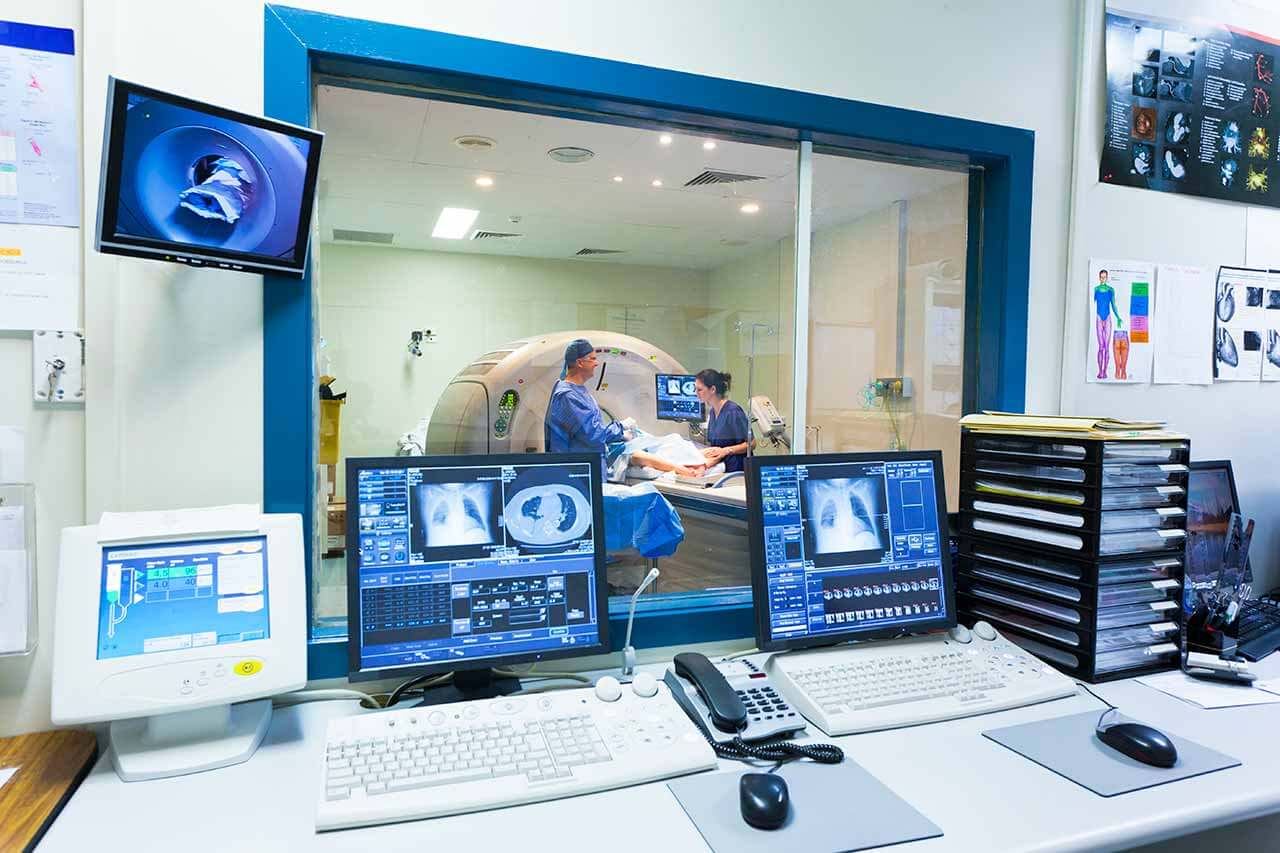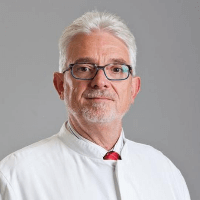
About the Department of Nuclear Medicine at University Hospital Frankfurt am Main
The Department of Nuclear Medicine at the University Hospital Frankfurt am Main offers the full range of modern diagnostics and therapy using various radioisotopes.
The department is headed by Prof. Dr. med. Frank Grünwald. In 1990, the doctor had his board certification in nuclear medicine, after which he worked for about 10 years at the University Hospital Bonn. At the moment, Prof. Grünwald, who has over 30 years of experience in treating patients with radionuclide methods, is recognized as one of the best specialists in Germany. He always makes every effort to ensure that his patients receive first-class medical care. The doctor has special experience in radioiodine therapy, positron emission tomography, and the use of radionuclide methods for cancer treatment. He is a member of many professional organizations and a winner of awards for his scientific work. He authored about 90 publications in the scientific literature, as well as some full books and individual chapters of books on nuclear medicine.
The department is equipped with the advanced systems for carrying out such high-precision and informative examinations as SPECT, PET, etc. The department carries out more than 8,000 outpatient examinations annually. The key focus in the field of diagnostics is on the detection of neurological, cardiac and oncological diseases. The department's therapeutic options include the treatment of benign and malignant diseases of the thyroid gland, pain therapy in bone metastases, treatment of malignant tumors in children (for example, neuroblastomas). The spectrum is also complemented by such innovative techniques as radiosynoviorthesis, selective internal radiation therapy and radioimmunotherapy.
Of particular interest to the department's specialists is the diagnostics and treatment of thyroid diseases. To make an accurate diagnosis, they conduct reliable and proven examinations, such as ultrasound and scintigraphy. The doctors mostly have to deal with such pathologies as goiter, thyroid hyperfunction and hypofunction, Graves' disease, thyroid inflammations, thyroid cancer. Once an accurate diagnosis is made, the doctor will develop an individualized treatment regimen aimed at the successful treatment outcome. One of the most common treatment methods is radioiodine therapy.
The service range of the department includes:
| Diagnostics |
|
| Therapy |
|
| Other diagnostic examinations and treatment methods |
Curriculum vitae
- 1978 - 1984 Study of Human Medicine at the University of Bonn.
- 1984 Medical state examination.
- 1984 Admission to medical practice.
- 1984 - 1986 Research Fellow at the Institute of Physiology I of the University of Bonn.
- 1986 Doctoral Degree.
- 1986 Research Fellow in the Department of Nuclear Medicine at the University of Bonn
- 1990 Board certification in Nuclear Medicine.
- 1992 Habilitation in Nuclear Medicine and appointment as PD.
- 1992 Senior Physician in the Department of Nuclear Medicine.
- 1994 Leading Senior Physician in the Department of Nuclear Medicine.
- 1997 Appointed as an Extraordinary Professor.
- 1999 Taking up the duties as the Head of the Department of Nuclear Medicine at the University Hospital Frankfurt am Main.
Photo of the doctor: (c) Universitätsklinikum Frankfurt
Sources:
